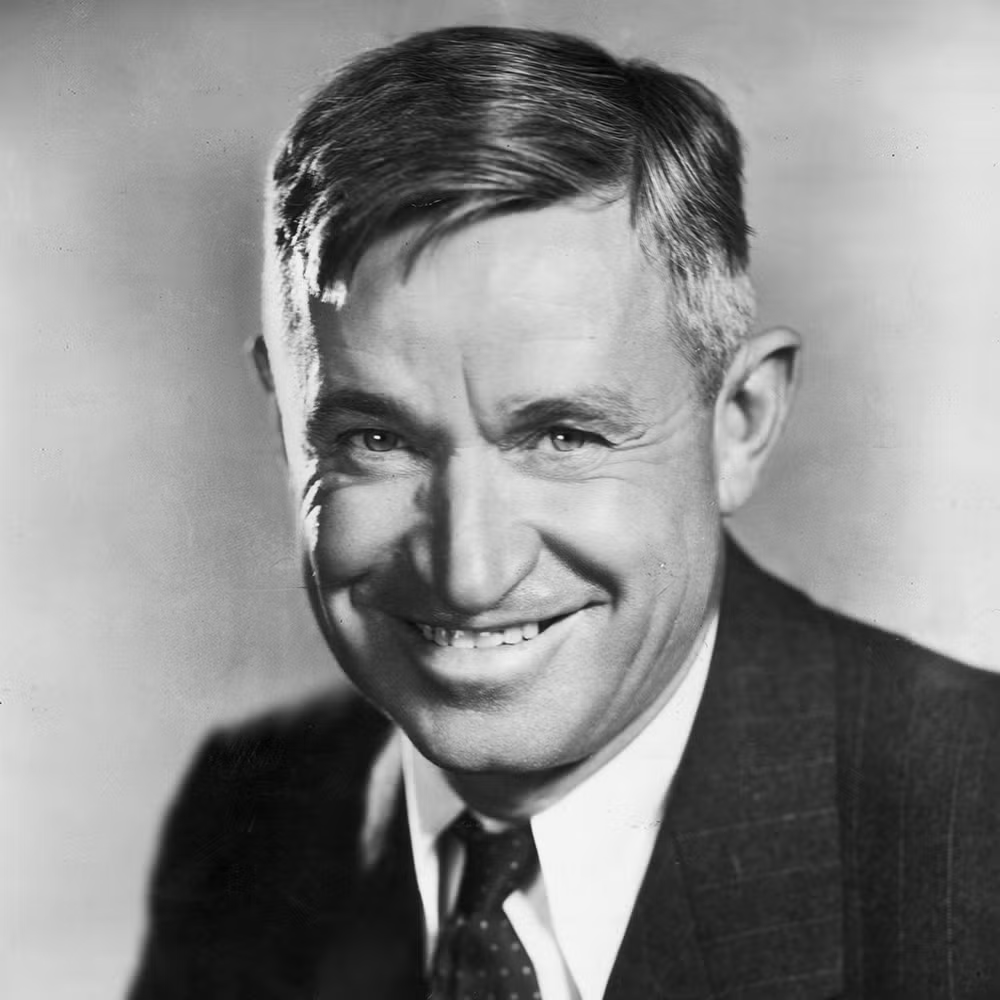
Table of Contents
Who Was Will Rogers?
Will Rogers, an iconic figure of American entertainment, transitioned from Wild West shows to vaudeville and Broadway, becoming a celebrated actor and author in the 1920s and 1930s. His distinctive folksy wit and practical perspective resonated with audiences, establishing him as one of the most recognizable figures of his time.
Early Life
Born on November 4, 1879, in what is now Oologah, Oklahoma, Will Rogers grew up in a ranching family. As a person of partial Cherokee descent, he fostered connections with both Indigenous peoples and Anglo-American settlers in his community. In his teenage years, Rogers left Oklahoma and began to find opportunities in the popular traveling Wild West shows.
Career
In 1905, Rogers embarked on a career in vaudeville, showcasing his lasso act. His engaging personality, humor, and impressive technical skills quickly propelled him to stardom. Audiences were captivated by his spontaneous commentary interwoven with elaborate roping tricks.
Rogers seamlessly transitioned from vaudeville to Broadway, making his New York debut in 1916 with The Wall Street Girl. He went on to star in numerous theatrical productions, including headlining roles in the Ziegfeld Follies. As the film industry emerged, Rogers made his mark in silent films, often portraying a charming country bumpkin navigating the complexities of modern life.
In addition to his acting career, Rogers gained national recognition as a writer. His columns for the Saturday Evening Post were widely circulated, addressing contemporary issues through the lens of small-town morality and highlighting the integrity of working-class Americans. This perspective resonated with audiences during a time of rapid industrialization in the United States. Many of his books, such as The Cowboy Philosopher on Prohibition and There’s Not a Bathing Suit in Russia, became bestsellers.
By the 1930s, Rogers had transcended his country bumpkin persona, showcasing his characteristic wit and wisdom in a more polished manner. He collaborated with the legendary director John Ford on three films—Doctor Bull, Judge Priest, and The Steamboat Round the Bend. After completing these films in 1935, Rogers planned an adventurous trip to Alaska, where he aimed to explore remote areas by both plane and foot.
Death
Tragically, on August 15, 1935, the plane carrying Rogers crashed in Point Barrow, Alaska, resulting in his immediate death. The loss of this quintessentially American voice resonated deeply across the nation, with millions mourning his sudden passing.
In 1991, Rogers’s legacy was revitalized through the Broadway show The Will Rogers Follies, which starred Keith Carradine. The production celebrated Rogers’s performances as a headliner of the Ziegfeld Follies and garnered several Tony Awards, including Best Musical, Best Musical Score, and Best Direction.
